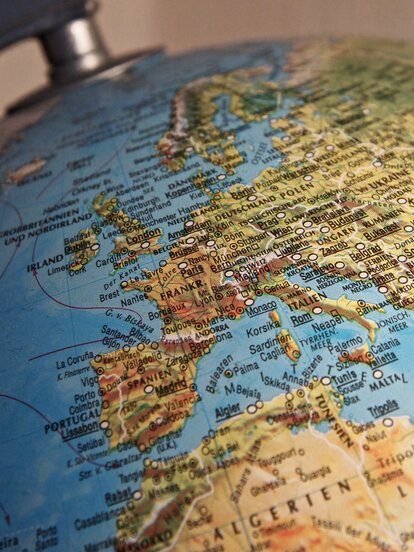Technology
Barcelona's Mobile gets bigger: from mobiles to telecommunications networks

Three editions have passed at half throttle. Since February 2020, when it was the first major international fair to be suspended - to the surprise and criticism of many - due to the pandemic, the Mobile World Congress held in Barcelona regained its vigour in this latest edition, with more than 85,000 attendees without the need for a mask or a Covid-19 test at the entrance. And the fair returned with a renewed air. Among its more than 3 million square metres of exhibition space, there was room for mobiles, as could not be otherwise, but with much less prominence.
In this new scenario, which brought together 2,400 exhibitors and congress participants from 200 countries, as reported by the organising body GSMA, great technological advances were observed, which undoubtedly makes us affirm that we live in a digital world. However, a reflection on the issue would lead us to the great differences that exist between one country and another. While, for example, Europeans talk about 5G or the future 6G, smart glasses, the metaverse, cybersecurity or the impact of artificial intelligence... in some African countries they even have difficulty connecting to the internet. The reality is that there is great technological inequality, which has not prevented this continent, Africa, from attending this technological meeting. The differences between Mediterranean countries in this sector are more than a fact.
However, as was seen at the Mobile World Congress, there are numerous initiatives to bridge the digital divide. For example, on this stage, Vodafone presented the first mobile broadband satellite network that will affect the entire Mediterranean region. We should also remember the "Medusa" project, which will connect the European countries of the Mediterranean: Cyprus, Spain, Portugal, France and Italy with their North African neighbours: Morocco, Algeria, Tunisia and Egypt, by means of an underwater fibre optic cable.

But returning to Barcelona, the major consumer technology brands opted to make their big presentations of new mobiles before the fair began, in order to gain a few minutes of exclusive media attention. Industry sources claimed that by taking the focus away from the days of Mobile, companies achieved more exclusivity.
However, this pure marketing strategy transformed the fair from an exhibition of mobiles and other types of wearable devices to a congress in which telecommunications and networks were much more prominent. The big operators (mainly Telefónica, Vodafone and Orange) intensified their offensive against technology companies that do not pay for the use of an infrastructure in which they have been investing millions of euros for years. And taking advantage of the fact that the European Commission has just opened a public consultation to debate whether these multinationals should support telecommunications companies now that a period of more investment is coming for 5G, they put the focus of the debate on this issue, turning all eyes away from the traditional 'little gadgets'.
The European Commission's proposal would include a 'toll' that these big tech companies would have to pay to the operators in each country to contribute to the financing of network infrastructures in Europe. The operators claim that they have invested more than 3.6 billion euros in fixed infrastructure since 2012, a "gigantic" effort due to the intense use of the network in Europe today by platforms such as Google, Amazon, HBO or Netflix, some 27 times more than ten years ago and which represents some 15 billion euros a year for European operators, according to their calculations.
As expected, those potentially affected were against the 'invitation' from José María Álvarez-Pallete, president of Telefónica. Google claims that European regulators have not found evidence of market failure or consumer harm that should lead to the introduction of "network fees". In addition, they claim that they are also making very significant investments - they put them at more than 23 billion euros by 2021, much of it in infrastructure. The problem with these 'tolls' will be an increase in prices for consumers: "If it costs Netflix more to deliver a video, they will redirect it to consumers", says Google.

And all this without forgetting the technological context of massive layoffs that already totals more than 250,000 workers globally, with Amazon, Meta and Twitter leading the way. Their aim is to restructure their gigantic organisations and, in the case of Amazon (more than 18,000 redundancies), to focus on its cloud business (Amazon Web Services, AWS) for companies, the segment that gives the multinational founded by Jeff Bezos the most joy.
At the European level, there are not so many redundancies. For now, one of the few companies affected by the massive layoffs is the German software firm SAP, which announced the dismissal of 3,000 workers, 2% of its workforce. In fact, Mobile has led some firms to analyse the possibility of bringing their production to Europe, as in the case of HMD Global, a Finnish company that has been producing Nokia for a number of years. HMD Global announced that it is developing capabilities and processes to bring Nokia 5G device production to Europe starting this year. It is not yet known which country would be the location, but Mediterranean countries could start to benefit from the desire of many firms to bring production back to Europe in employment-friendly destinations.
Google, Qualcomm, Amazon and Vodafone have chosen Spain to set up their top-level centres. Google will set up a cyber-tracking centre in Malaga, which it plans to open this year. Vodafone also chose this city a year ago for its innovation centre, although they have outgrown it (they already have 300 workers, but the intention is to reach 600 in five years) and they have just announced the opening in spring of a new R&D centre with the University of Malaga. US-based Qualcomm said it will open an extended reality research centre in Madrid. And Amazon announced at the end of 2022 the opening of an infrastructure region in Aragon in which it will invest 2.5 billion euros over ten years and create 1,300 jobs, and which aims to allow its customers to store data in Spain.
Technological progress is more than a reality, although it is clear that the speeds in different countries are very different, and the Mediterranean region is no exception.
